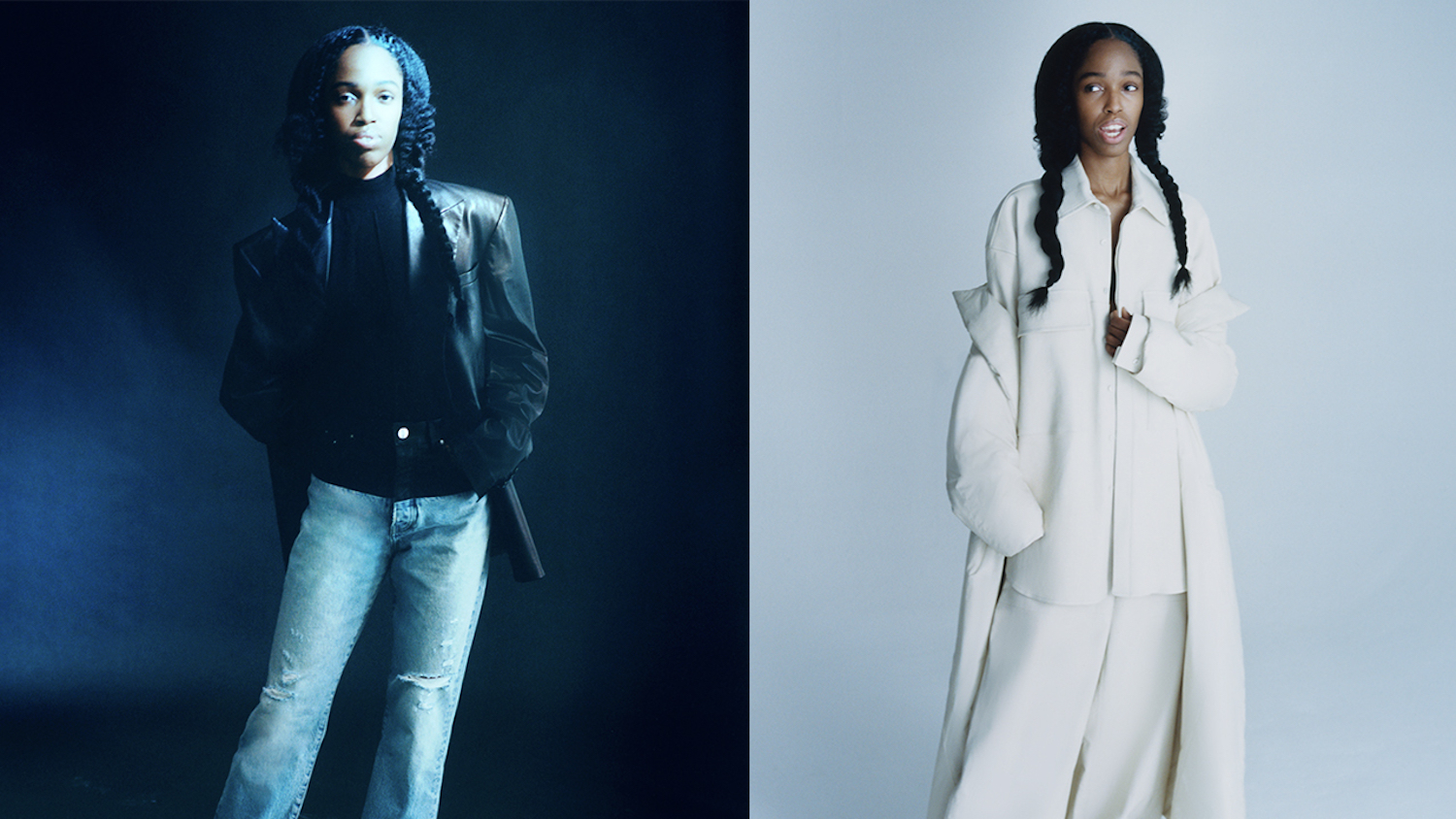“They keep saying this about me!” John Glacier giggles, giving her thoughts on the term she’s often labelled as – elusive. “In every interview I’ve done, I’ve always said that that isn’t the case, but that’s what I always get called.” Granted, such conclusions about the 26-year-old musician – even if misguided – are understandable. If we’re just taking her public persona into account, there’s always been something to it that slips from the grasp. For starters, there’s the fact that, prior to the release of her breakout album, SHILOH: Lost For Words, last year, she was best known as an enigmatic figure of Soundcloud lore, and for her appearances on releases by Babyfather and LYAM.
To read that as evidence of intentional shiftiness, though, is to look at her through the wrong lens. Frank, deadpan and endearingly off-beat are the adjectives that come to mind when speaking to her. Few things are off-bounds, it seems, as she hopscotches from recounting a recent day trip to Margate – a much-needed moment of reprieve from Hackney, where she was born, raised, and lives today – to her love for pigs (“they’re basically like hairless puppies only smarter!”), to her New Year’s spent in seven-inch heels at Benji B’s party at The Standard, to writing rhymes from the perspective of a pair of shoes. Within a few minutes, any preconceptions of guardedness are dissipated, giving way to the understanding that the terms often used to describe her are simply a matter of “people using language the wrong way.”
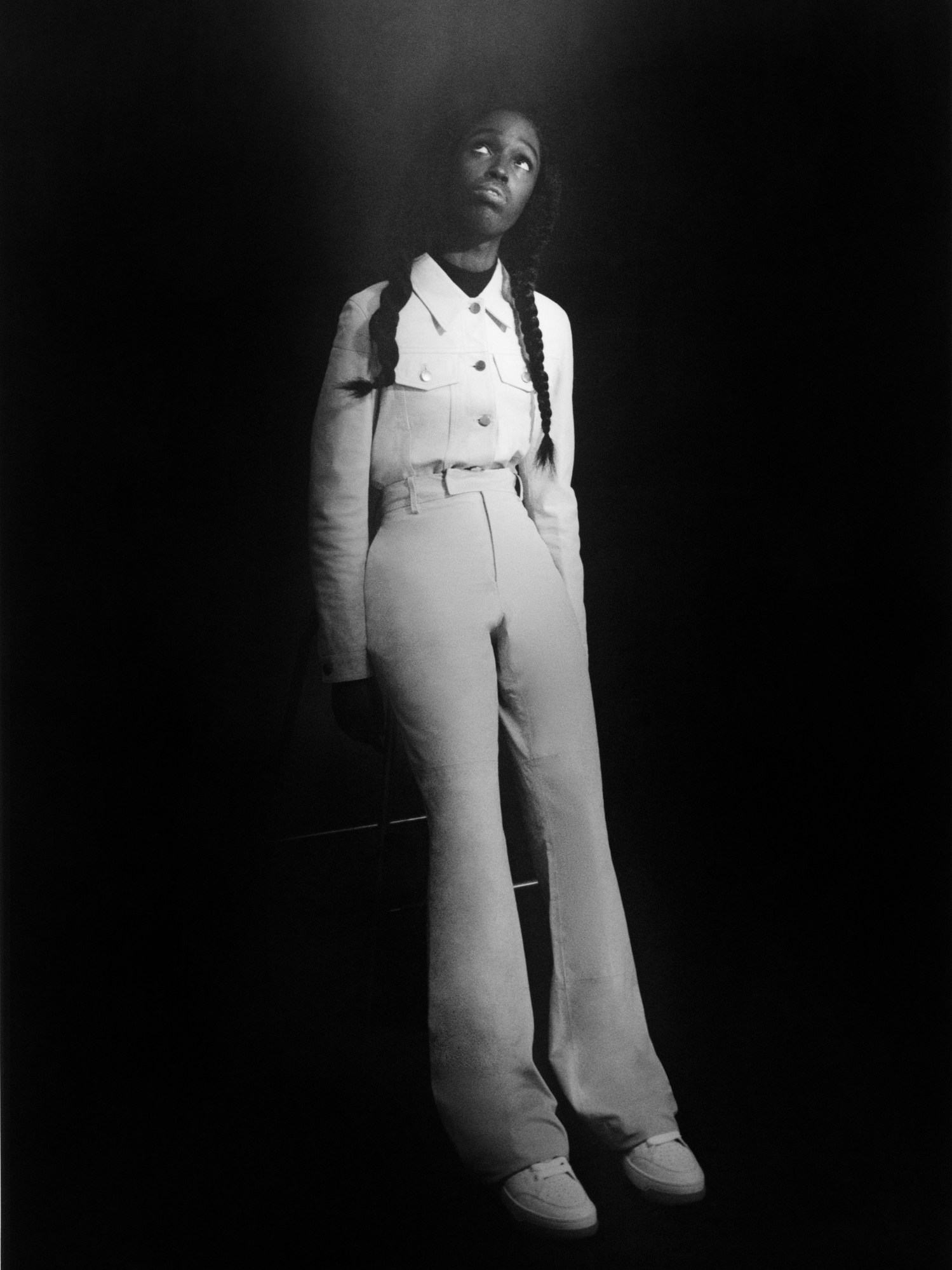
If anyone’s well-placed to deliver that critique, it’s John. As she states with gusto on Icing, a coolly bubbling contemplation of self-perception, “I’ve got a world of words, I’m not trying”. And despite what her album’s title implies she’s anything but lost for words – “I just have Dad humour!” she says. Indeed, her genius knack for layering words – gesturing towards meaning or feeling, but stopping short of pointing it out – is her hallmark. “That’s what I love so much about language,” she says. “It’s like creating a puzzle. You can piece different words together, but the meaning of that one sentence can take on so many more depending on how you say it and the context you put it in.”
Granted, she’s sharpened her pen over a good few years. A keen poet since childhood, often writing snippets of verse as gifts for friends, language has played such a crucial role in her creative development that, even now as a recording artist, she “literally writes without an instrumental playing. I’ll write a verse to the sound of silence, and then if I hear a beat that fits what I wrote, I’ll try it out. I’m not that much of a melodic person, really.” In fact, it was only about four years ago that she first turned to music, driven by a need to find a place to get things off her chest away from the well-meaning but ultimately unempathetic ears of others. “Music offered me a safe space,” she says. “Only you know how you feel. Sometimes talking to people can be a waste of time – I just got tired of opening up and then hearing stuff that isn’t really relevant to how I felt. I wasn’t really being heard. So I was just like, ‘I’m not gonna be gaslit by anyone, I know how I feel, so I’m just gonna lay it out here.’”
When asked why she’s previously described SHILOH as a selfish exercise, she bluntly confesses that “the intent was really on creating something that was for me personally – it’s quite narrow in its focus.” Rather than the clear-cut egotism it typically designates, though, John inflects the word with positivity. “You can write a song about yourself, but it can still be for an audience. With this, though, I didn’t know who the audience was, I just knew that I was part of it. I wrote it so that I could close chapters, but I knew that people who feel the way I felt might get comfort from listening to it.”
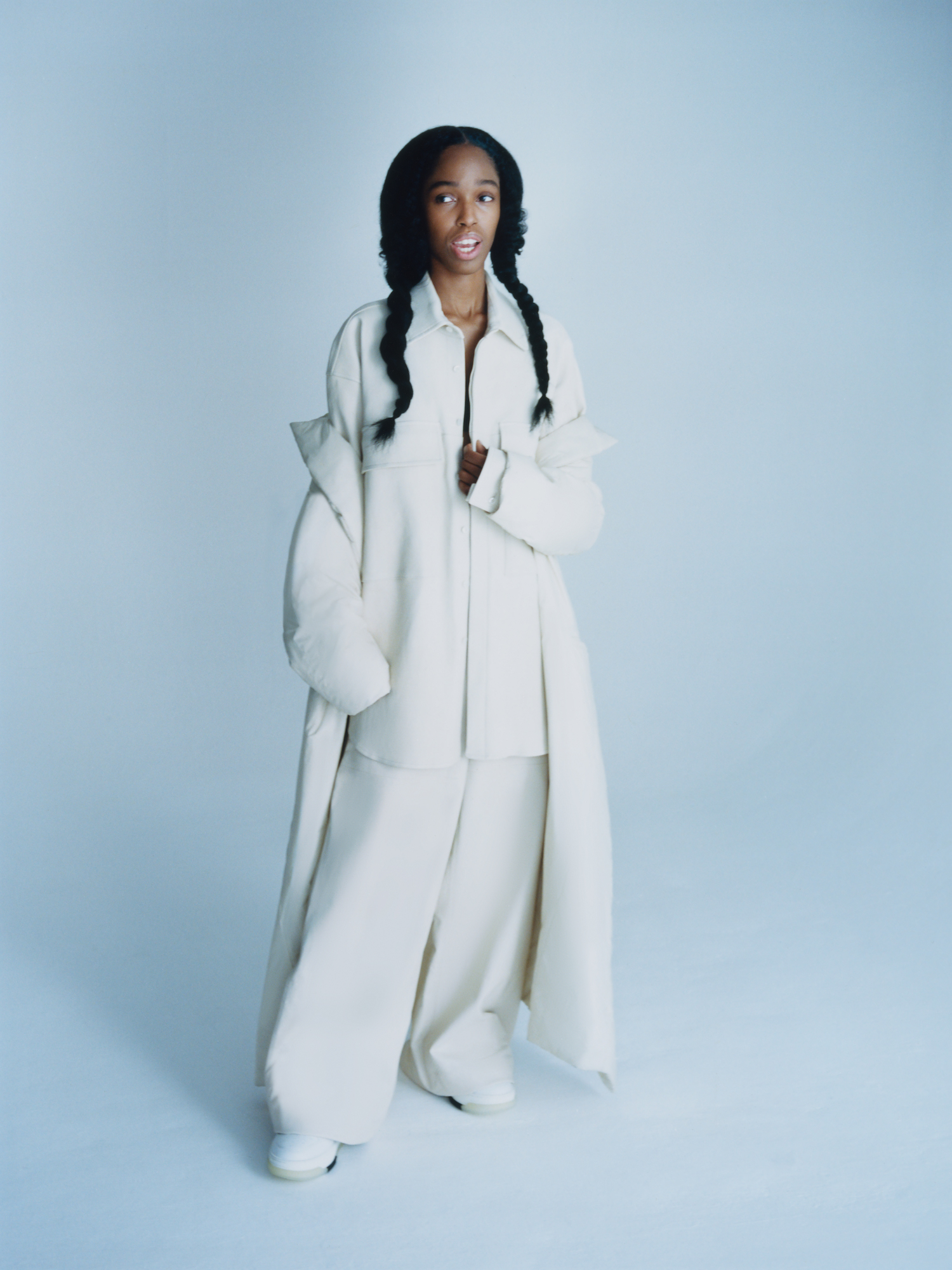
The range of people that applies to is perhaps broader than even John herself realises. Even if each track on SHILOH is an almost verbatim transcript of her most intimate thoughts, there’s something in their hazy frankness that feels familiar. The soaring strings and jangly percussion of If Anything recalls stepping through soundproofed doors into a club’s main room, while the wobbly twangs and ache-y sax of Trelawny Waters hint at the solemn bliss of the comedown spent on a friend’s sofa the morning after. The grainy distortion on the vocals of Icing makes it feel like you’re listening to your own voice notes through a phone speaker held to your ear.
Eclectic as that may sound, take one look at John and it makes clear sense. Describing her approach to style as being “mood-based” like her approach to music, she’s a self-confessed sartorial chameleon. It’s this sense of flexibility and playfulness that first drew her eye to AMIRI’s SS22 collection, the LA label’s first exclusive womenswear offering, which spans svelte tailoring and cropped wide-leg jeans with frayed hems; buttery leathers, bleached denims and weighty felted cashmeres. “Whatever you wear, it’s just so stylish,” she says, “and even just from looking at it, you immediately get a sense of how comfortable it is to wear. The textures are so rich, and the stitching and cuts are always so perfect – which is something that I’m so particular about.” There’s also the cultural significance of the brand to take into account, too, she notes: “I’m saying this as someone from Hackney – in London’s rap music scene, AMIRI is massive. Like, my younger brother won’t wear jeans if they aren’t AMIRI! And he’s obviously not the only one.”
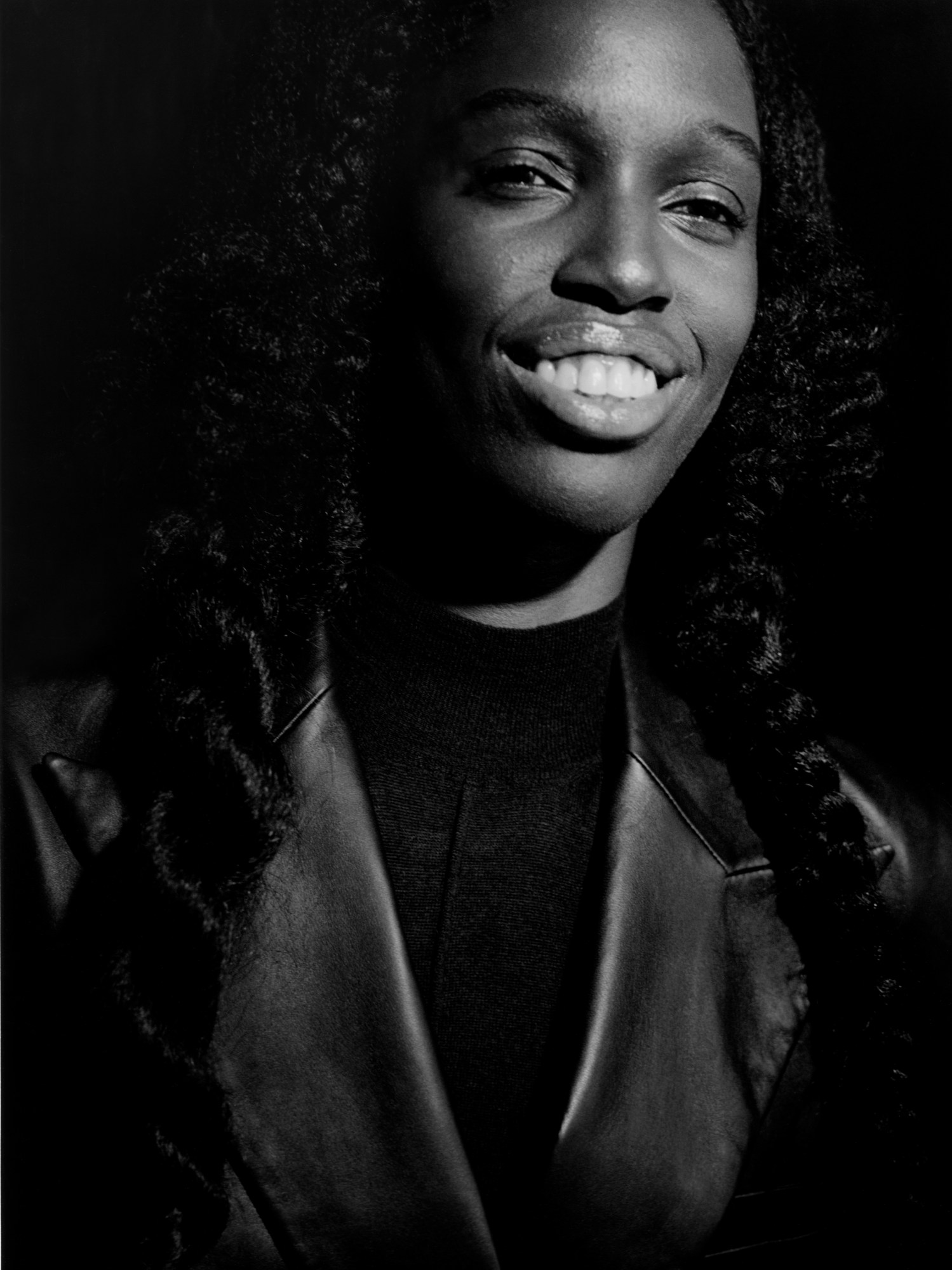
John would love to follow suit, she says, and concedes that her denim budget doesn’t quite stretch that far. Well, not yet at least – if one thing’s clear from the release of SHILOH, it’s that John’s chances of walking a path to prosperity are pretty damn high. She’s under no illusions, though, of what treading that path would entail. “I mean, this is where it gets annoying,” she says, contemplating the commercial demands of a career within the music industry. “Now that I’m being heard within the industry, people have expectations of what should come next. No one’s directly said that, but it’s human nature to compare things to the last thing you did. They’ll be like ‘Oh my gosh, this is nothing like John’s last project!’, but no one fucking said it would be!” she says. “I like having the freedom to create different types of music depending on how I feel or where I’m at, but, logically speaking, I do feel like I should consider the audience more. If I don’t, I’m taking a massive gamble – there’s a much greater risk of people not liking what I put out – it may not be part of how people conceive of me as an artist.” Such concerns are entirely valid, as they are for any artist. In John’s case, though, there’s something in the precise nature of her gift – an intuitive ability that appeals to our most private senses of self-understandings – that makes us think that wherever the glacier flows people will gladly go.
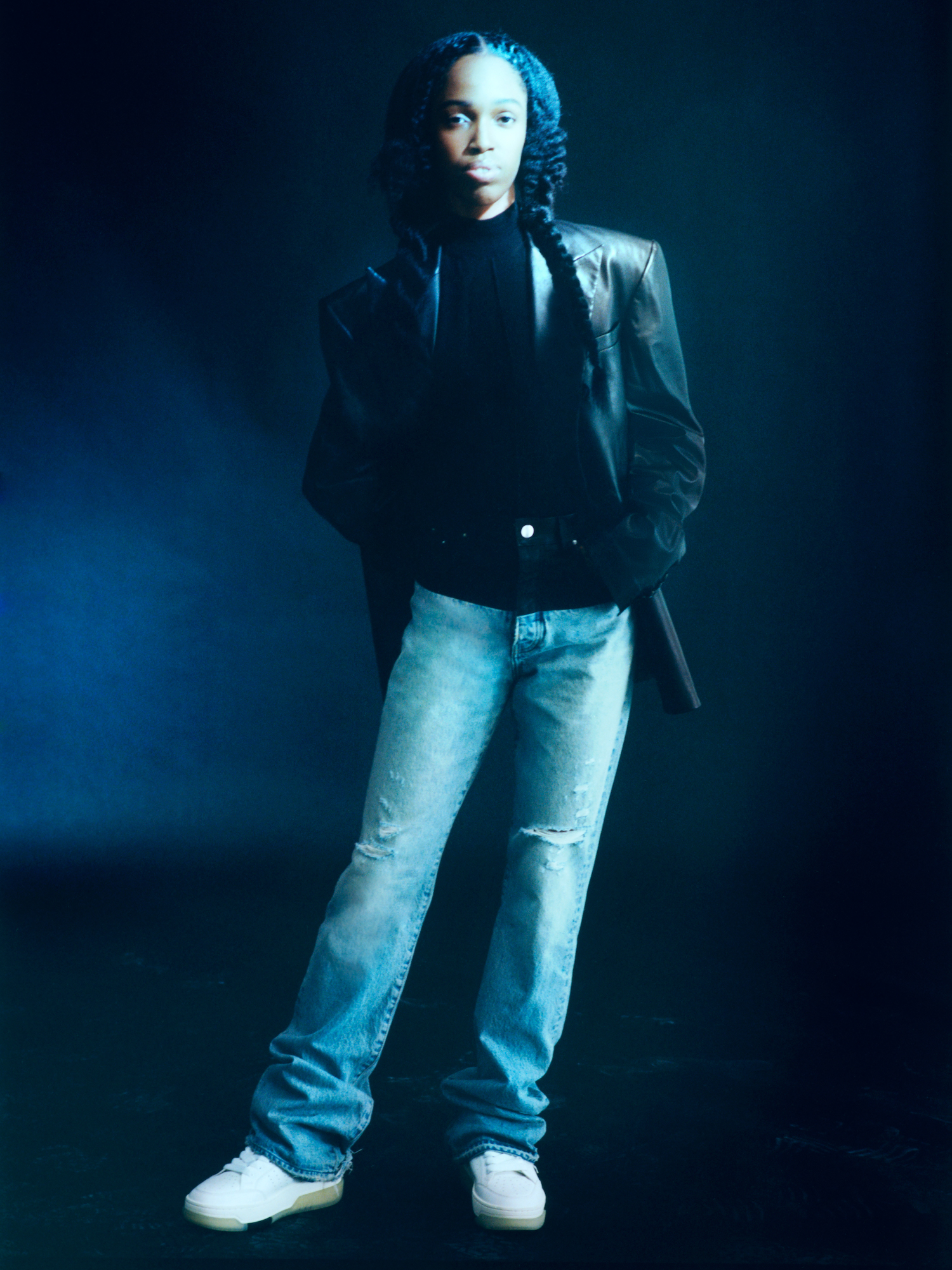
Discover more here.
Credits
Photography Sarah Stedeford.
Fashion Bojana Kozarevic.
Hair Amidat Giwa at Bryant Artists using L’Oreal Professional.
Make-up Rebecca Wordingham using Dr.
Barbara Sturm and M.A.C Cosmetics.
Nail technician Emily Rose Lansley at Saint Luke Artists using Dior Manicure Collection and Miss Dior Hand Cream.
Photography assistance Edward Emberson and Arthur Comely.
Styling assistance Marina de Magalhaes and Aurélie Mason-Perez.
Hair assistance Avrell Delisser.
Production Iain McCray Martin.
Retouching Oliver Marshall.
All clothing and shoes (worn throughout) AMIRI.
